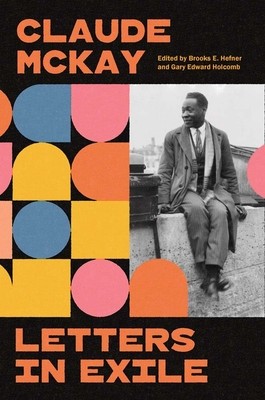
- We will send in 10–14 business days.
- Author: Claude McKay
- Publisher: Yale University Press
- ISBN-10: 0300276478
- ISBN-13: 9780300276473
- Format: 15.8 x 21.6 x 3.3 cm, kieti viršeliai
- Language: English
- SAVE -10% with code: EXTRA
Reviews
Description
A collection of private correspondence from one of the Harlem Renaissance's brightest and most radical voices The Jamaican-born, queer author Claude McKay (1890-1948) was a central figure of the Harlem Renaissance. His 1919 poem "If We Must Die" expressed a revolutionary vision for militant Black protest art, while his novels, including Home to Harlem, Banjo, and Banana Bottom, described ordinary Black life in lyrical prose. Yet for all that McKay connected himself to Harlem, he was a restless world traveler who sought spiritual, artistic, and political sustenance in France, Spain, Moscow, and Morocco. Brooks E. Hefner and Gary Edward Holcomb bring together two decades of McKay's never-before-published correspondence from the road with correspondents including W. E. B. Du Bois, Langston Hughes, Alain Locke, Max Eastman, and Louise Bryant. With wit, wisdom, insight, and sometimes irascible temper, McKay describes how he endured harassment from British authorities in London and worked alongside Leon Trotsky and Alexander Kerensky in Bolshevik Moscow. He reflects on Paris's Lost Generation, immerses himself in the Marseille dockers' noir subculture, and observes French colonialism in Morocco. Providing a new perspective on a unique figure of American modernism, this collection reveals McKay gossiping, cajoling, and confiding as he engages in spirited debates and challenges the political and artistic questions of the day.EXTRA 10 % discount with code: EXTRA
The promotion ends in 23d.22:22:21
The discount code is valid when purchasing from 10 €. Discounts do not stack.
- Author: Claude McKay
- Publisher: Yale University Press
- ISBN-10: 0300276478
- ISBN-13: 9780300276473
- Format: 15.8 x 21.6 x 3.3 cm, kieti viršeliai
- Language: English English


Reviews